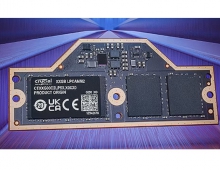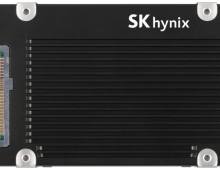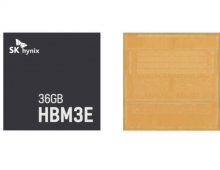
Rambus Receives Decision from Court of Appeals for the Federal Circuit
A U.S. appeals court agreed that Rambus Inc. destroyed documents relevant to patent infringement trials with Micron Technology Inc. and Hynix Semiconductor Inc. and sent the cases back to a lower court to determine appropriate sanctions.
Rambus Inc. on Friday announced that the Court of Appeals for the Federal Circuit (CAFC) has issued its decisions in cases with Hynix Semiconductor and Micron Technology Inc.
Regarding the Micron Technology inc. case, the court said it was clear Rambus had destroyed documents but it was not clear the action was so serious that a lower court should have tossed out its suit.
It sent the dismissal back to the U.S. District Court in Delaware, adding that the lower court might still decide the shredding was serious enough for Rambus to lose the case it brought against Micron Technology, the top U.S. maker of memory chips for computers.
In the other ruling, the appeals court found Rambus destroyed documents related to a patent suit it successfully brought against Korea's Hynix Semiconductor. It asked the U.S. District Court for the Northern District of California (NDCA) court to review its ruling in view of the document destruction.
"We are very disappointed with the decisions in these cases," said Thomas Lavelle, senior vice president and general counsel at Rambus. "We are hopeful when the district courts reconsider these decisions, they will find, as we believe, there was no bad faith and no prejudice."
At issue in both of these cases is when Rambus reasonably foresaw litigation. Both district court judges in these matters identified different dates, with the NDCA determining Rambus did not engage in bad faith, while the Delaware Court determined that Rambus executed its document retention policy during a time when it reasonably foresaw litigation.
"While today's decisions are disappointing, our commitment to innovation is unwavering. Rambus is a resilient company, and we will continue to move our business forward. This is true for our semiconductor business as well as the lighting and display business and the newly-announced acquisition of Cryptography Research," said Harold Hughes, president and chief executive officer at Rambus.
"We are pleased that the Federal Circuit panel unanimously agreed with Judge Robinson's decision in Delaware that Rambus wrongfully destroyed evidence," said Rod Lewis, Micron's Vice President of Legal Affairs and General Counsel. "We believe the record before Judge Robinson provides more than ample support for the Federal Circuit's request for findings regarding Judge Robinson's decision that Rambus acted in bad faith and, therefore, the only appropriate sanction was to declare Rambus' patents unenforceable against Micron." South Korea-based Hynix has not provided any comment yet.
This Hynix case was originally filed by Hynix against Rambus in August 2000. The case was split into three separate phases with Rambus prevailing in all three phases. The first phase considered Hynix's allegations that certain Rambus patents should be unenforceable under the doctrine of unclean hands and spoliation.
The second phase dealt with Rambus' allegations that Hynix memory products infringed its patents. A jury found in favor of Rambus by agreeing that Hynix memory products infringe all ten Rambus patent claims and awarded Rambus damages.
In the third and final phase of the case, Hynix (together with Micron and Nanya) alleged Rambus engaged in antitrust and fraud during its participation in a standard-setting organization called JEDEC in the early 1990s. A jury, again, found in favor of Rambus finding it had acted properly during its participation in JEDEC. Hynix appealed these decisions.
This Micron case was originally filed by Micron against Rambus in August 2000. The case was split into three separate phases with the first phase concerning allegations of unclean hands and spoliation. The district court found in favor of Micron and held that the Rambus patents at issue in this case were unenforceable against Micron. Rambus appealed the decision.
The court's rulings can be found at http://www.cafc.uscourts.gov/dailylog.html.
Regarding the Micron Technology inc. case, the court said it was clear Rambus had destroyed documents but it was not clear the action was so serious that a lower court should have tossed out its suit.
It sent the dismissal back to the U.S. District Court in Delaware, adding that the lower court might still decide the shredding was serious enough for Rambus to lose the case it brought against Micron Technology, the top U.S. maker of memory chips for computers.
In the other ruling, the appeals court found Rambus destroyed documents related to a patent suit it successfully brought against Korea's Hynix Semiconductor. It asked the U.S. District Court for the Northern District of California (NDCA) court to review its ruling in view of the document destruction.
"We are very disappointed with the decisions in these cases," said Thomas Lavelle, senior vice president and general counsel at Rambus. "We are hopeful when the district courts reconsider these decisions, they will find, as we believe, there was no bad faith and no prejudice."
At issue in both of these cases is when Rambus reasonably foresaw litigation. Both district court judges in these matters identified different dates, with the NDCA determining Rambus did not engage in bad faith, while the Delaware Court determined that Rambus executed its document retention policy during a time when it reasonably foresaw litigation.
"While today's decisions are disappointing, our commitment to innovation is unwavering. Rambus is a resilient company, and we will continue to move our business forward. This is true for our semiconductor business as well as the lighting and display business and the newly-announced acquisition of Cryptography Research," said Harold Hughes, president and chief executive officer at Rambus.
"We are pleased that the Federal Circuit panel unanimously agreed with Judge Robinson's decision in Delaware that Rambus wrongfully destroyed evidence," said Rod Lewis, Micron's Vice President of Legal Affairs and General Counsel. "We believe the record before Judge Robinson provides more than ample support for the Federal Circuit's request for findings regarding Judge Robinson's decision that Rambus acted in bad faith and, therefore, the only appropriate sanction was to declare Rambus' patents unenforceable against Micron." South Korea-based Hynix has not provided any comment yet.
This Hynix case was originally filed by Hynix against Rambus in August 2000. The case was split into three separate phases with Rambus prevailing in all three phases. The first phase considered Hynix's allegations that certain Rambus patents should be unenforceable under the doctrine of unclean hands and spoliation.
The second phase dealt with Rambus' allegations that Hynix memory products infringed its patents. A jury found in favor of Rambus by agreeing that Hynix memory products infringe all ten Rambus patent claims and awarded Rambus damages.
In the third and final phase of the case, Hynix (together with Micron and Nanya) alleged Rambus engaged in antitrust and fraud during its participation in a standard-setting organization called JEDEC in the early 1990s. A jury, again, found in favor of Rambus finding it had acted properly during its participation in JEDEC. Hynix appealed these decisions.
This Micron case was originally filed by Micron against Rambus in August 2000. The case was split into three separate phases with the first phase concerning allegations of unclean hands and spoliation. The district court found in favor of Micron and held that the Rambus patents at issue in this case were unenforceable against Micron. Rambus appealed the decision.
The court's rulings can be found at http://www.cafc.uscourts.gov/dailylog.html.





















